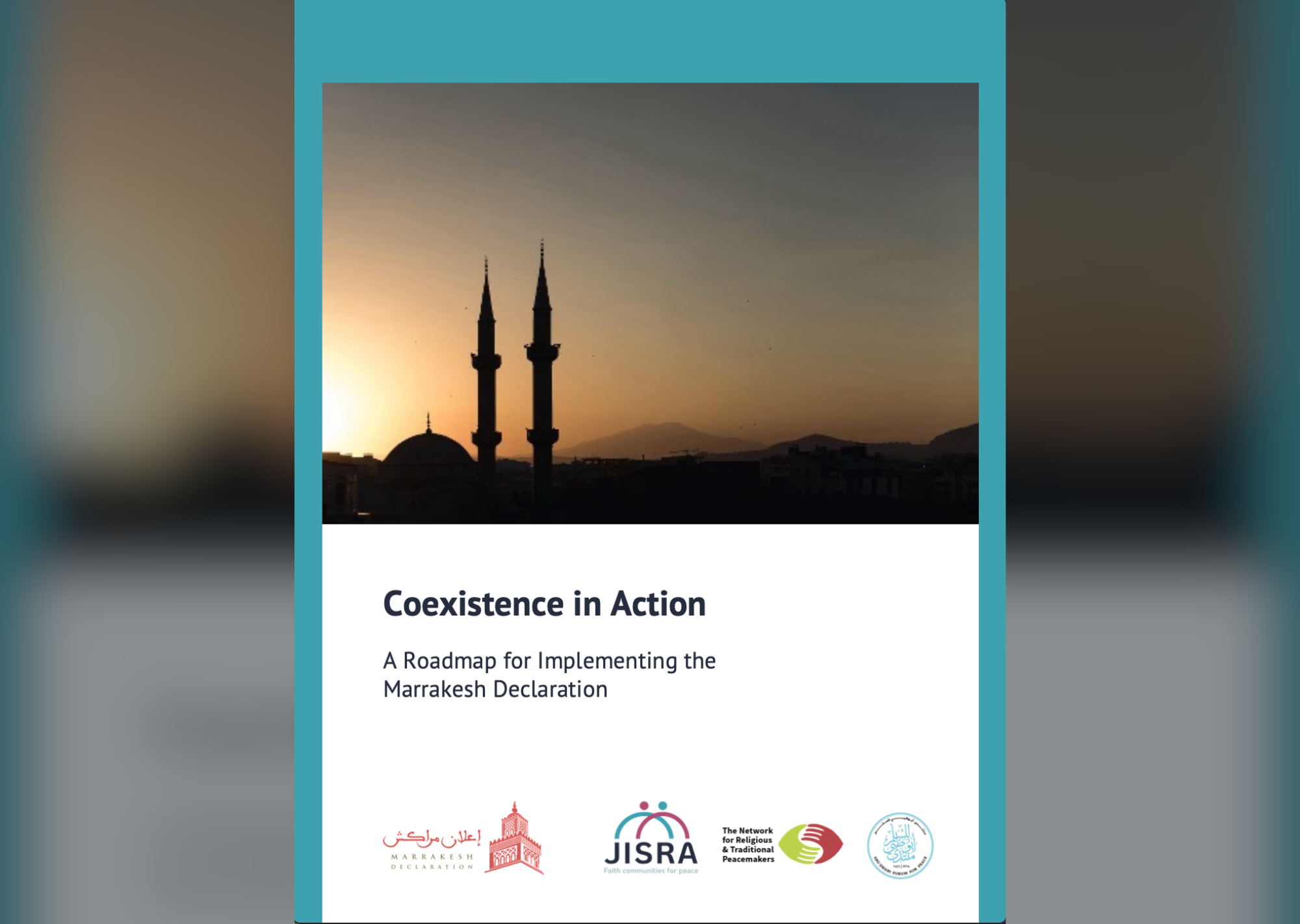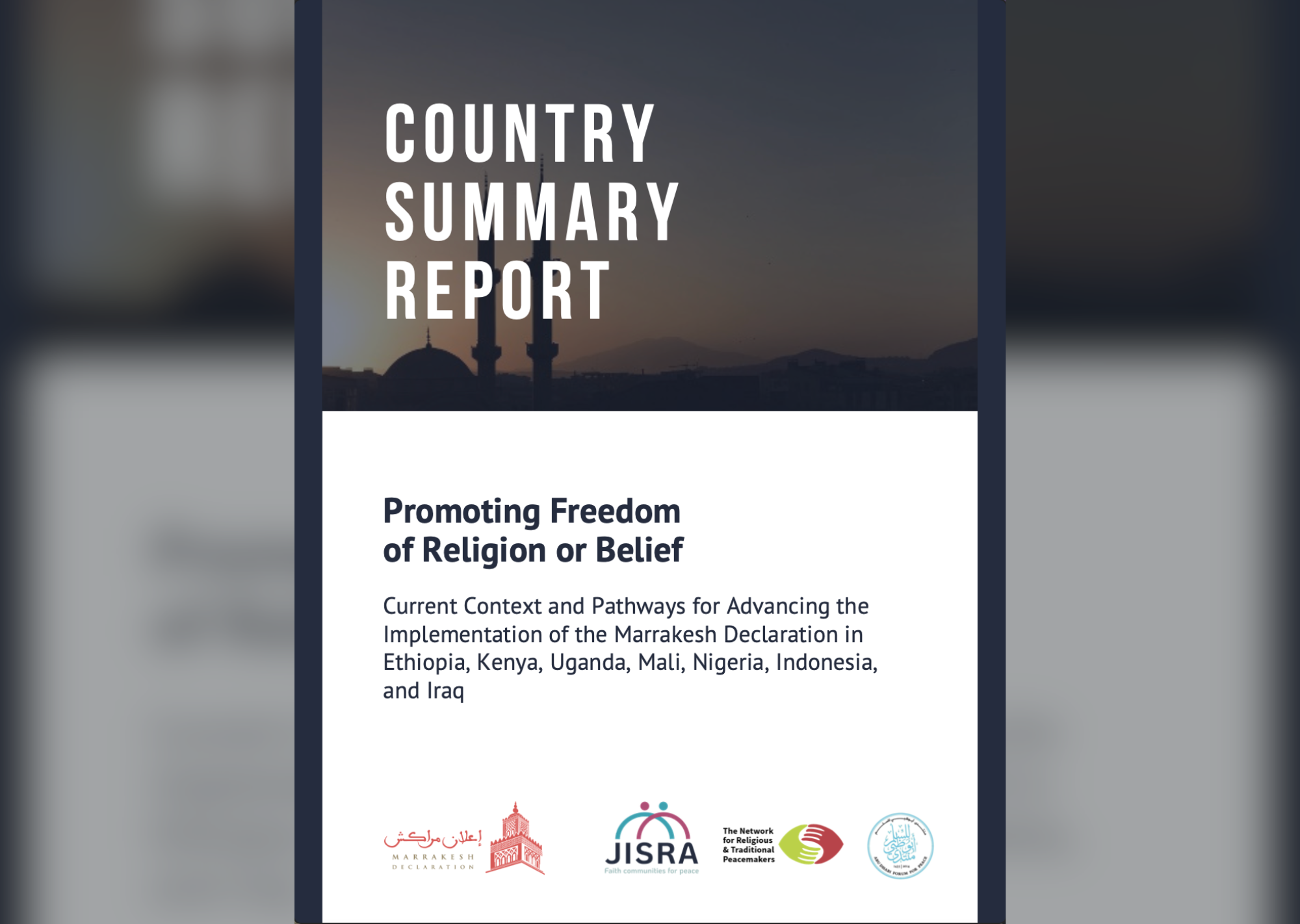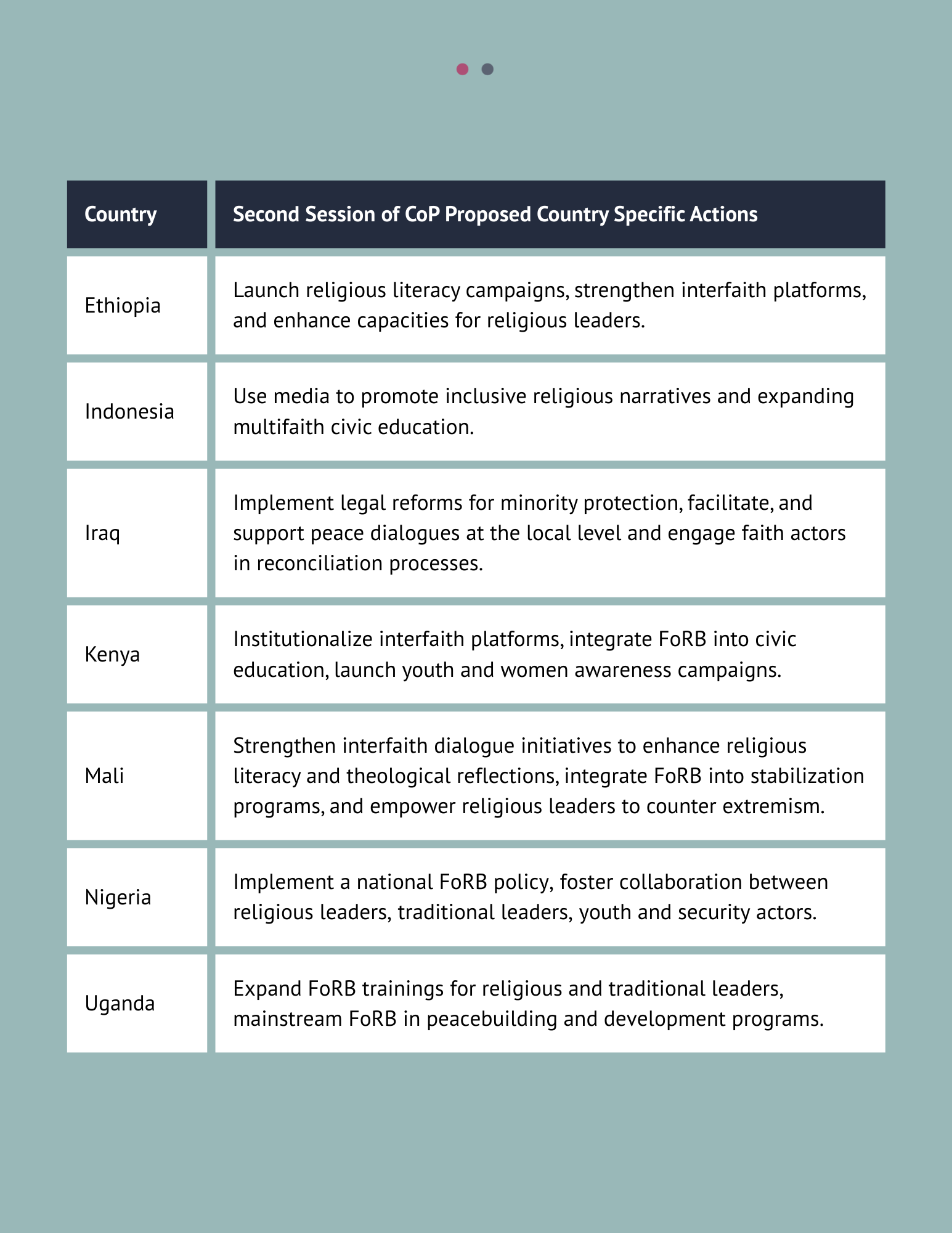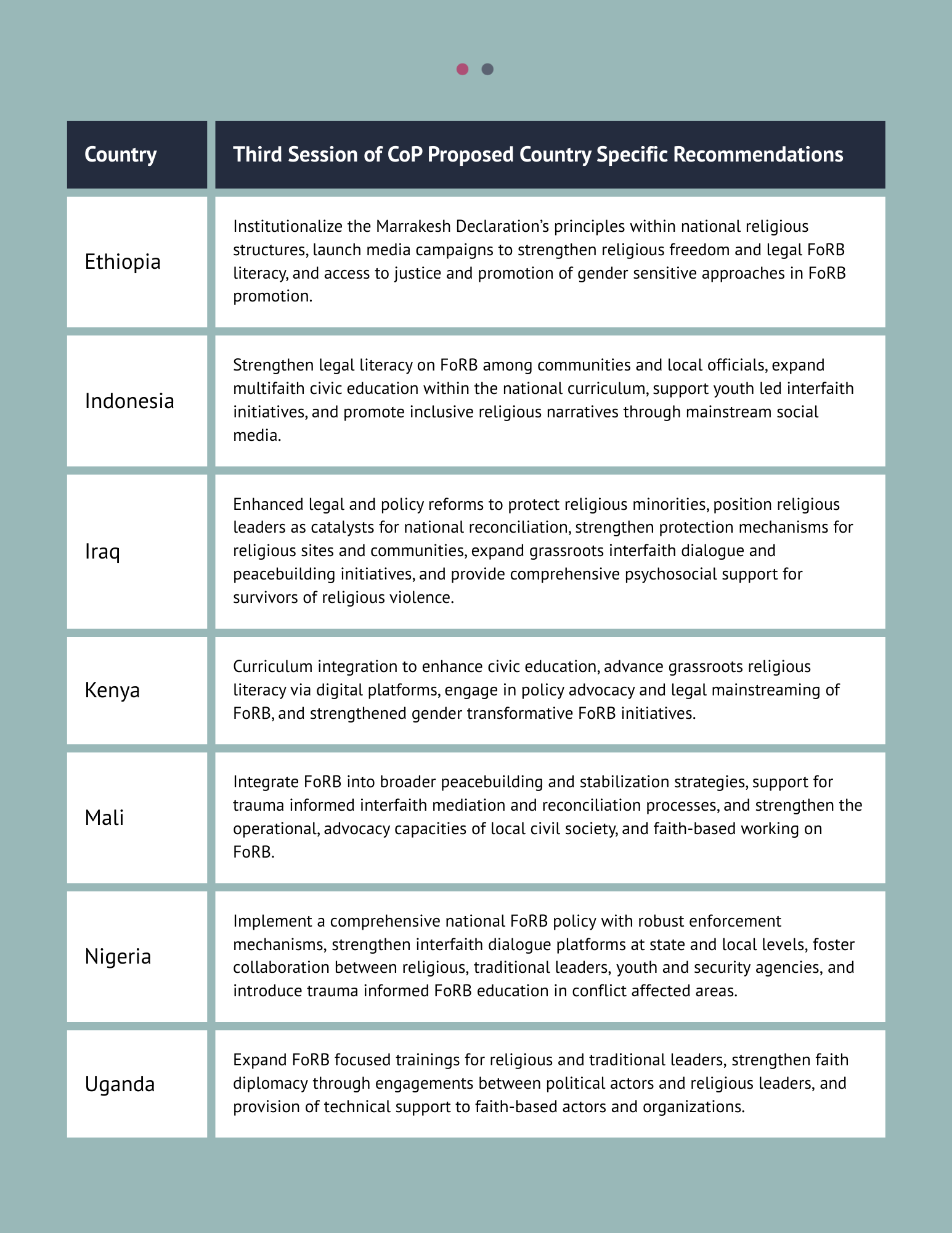Coexistence in Action: Roadmap for the Implementation of the Marrakesh Declaration
October 2025

‘Coexistence in Action: A Roadmap for implementing the Marrakesh Declaration’ is a new policy document developed under the Dutch-funded ‘Joint Initiative for Strategic Religious Action’ (JISRA) project. Designed to advance Freedom of Religion or Belief (FoRB) in fragile and pluralistic societies, the Roadmap draws on extensive consultations with grassroots actors and religious leaders. It is grounded in the lived experiences of JISRA partners who have implemented FoRB programming over the past five years in Mali, Indonesia, Ethiopia, Uganda, Kenya, Iraq, and Nigeria.
Rooted in local realities while aiming for global relevance, the Roadmap outlines actions, transformative strategies, and context-specific priorities to strengthen FoRB. It places particular emphasis on centering the voices of those most affected by religious persecution and exclusion, including faith actors, women, youth, and marginalized communities, recognizing them as critical agents of change.
This Roadmap is not merely a policy document. It is an invitation to reclaim the prophetic traditions of compassion, to renew the ethical commitments of governance, and to reimagine a world where religious diversity is not a threat, but a shared strength. It affirms peace, protection, and pluralism are possible and necessary for human flourishing.
In June 2025, the Peacemakers Network facilitated an Islam and FoRB Community of Practice (CoP) meeting to share a draft of the roadmap and gather feedback from implementing partners.
The first session of the CoP reflected on the vision and guiding values of Justice, Mercy, Solidarity, Dignity, Renewal, and Trust which are drawn from Islamic tradition and rooted in the principles of the Marrakesh Declaration. To operationalise this vision, the Roadmap is structured around three interlinked elements:
1. Transformative strategies that provide a basis for integrated action and partnerships;
2. Catalytic actions designed to accelerate measurable progress towards peaceful, just, and inclusive societies; and
3. Critical enablers that strengthen the foundations for ambitious and sustainable delivery.
Together, these elements form a cohesive framework that translates the aspirations of the Marrakesh Declaration into actionable pathways for societal transformation, rooted in Islamic tradition and in the universal principles of human dignity and justice.
Identified transformative strategies include theoretical reframing of FoRB within Islamic traditions and enhancing faith diplomacy and advocacy at the global level. National level strategies include local and inclusive movement building as well as legal and policy reform to protect minority groups. Catalytic actions for advancing the implementation of the Marrakesh Declaration include Friday sermon campaigns, annual Marrakesh peace forums, youth champion campaigns, translation of the Marrakesh Declaration through a gender lens, capacity building for religious leaders and communities and media engagements for peaceful coexistence and social cohesion. The Roadmap identifies a set of interconnected enablers which will systematically advance and actualize the vision. These enablers secure lasting impact by anchoring reforms in theological legitimacy, political commitment, strengthened collaboration and institutional partnerships, societal engagement, and inclusive innovation.
The second session of the CoP reflected on the country case studies which highlighted and summarized priority actions building on successes and experiences of JISRA partners working on FoRB in Mali, Nigeria, Kenya, Uganda, Ethiopia, Iraq and Indonesia. Proposed country specific actions include:

The third session focused on building on the above actions to strategic recommendations for implementing the Marrakesh Declaration to advance FoRB. Proposed country specific strategic recommendations identified include:
Participants identified three different phases for implementation of the Roadmap:
1. Foundation Building: Convene leading Islamic scholars to produce authority statements and interpretations affirming FoRB and integration of FoRB in religious curricula, develop national action plans aligned with the declaration and initiating legislative reforms, launch public education campaigns and mobilizing youth and women in dialogue processes, translate the Marrakesh Declaration into local languages and launching social media campaigns.
2. Expansion and Scaling: support youth empowerment and global faith diplomacy by organizing interfaith forums and deepening collaborations among governments, international organizations, grassroots faith-based organizations for strategic partnerships for implementation and establish monitoring frameworks.
3. Institutionalization and Sustainability: Strengthen national and regional networks, consolidate legal reforms to ensure FoRB protections are fully integrated into constitutional laws, formalize national interfaith and FoRB councils and integrate into peacebuilding efforts, ensure representation of women, youth in religious, political and civil society leadership structures. Finally strengthen the global recognition of the Marrakesh Declaration outcomes for replication beyond Muslim-majority countries.
About the JISRA Project
The Joint Initiative for Strategic Religious Action (JISRA) is a partnership of 50 civil society organizations based in Ethiopia, Indonesia, Iraq, Kenya, Mali, Nigeria, and Uganda (with supporting lobby and advocacy in Europe and the USA). This international, inter religious partnership is implementing a five-year program (2021-2025) in partnership with the Dutch Ministry of Foreign Affairs, to further peaceful and just societies where all enjoy Freedom of Religion and Belief (FoRB).
The program is coordinated by four international consortium partners: Mensen met een Missie Tearfund UK, Tearfund the Netherlands, Faith to Action Network, Search for Common Ground, and the Network for Religious and Traditional Peacemakers.
Follow the Peacemakers Network on social


